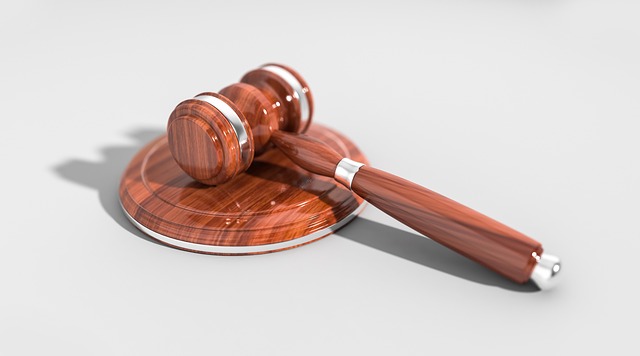C-Level Investigations rigorously probe high-profile misconduct involving top executives, balancing legal complexities with organizational impacts. Protecting Employee Rights Under Labor Law Violations is central, ensuring fair treatment through compliance with laws like FLSA and FMLA. Skilled investigators navigate evidence to uncover truth, upholding justice while managing business and employee effects. Serious consequences for labor law violations highlight the importance of investigations at every stage, empowering employees to document evidence, communicate with employers, and consult legal counsel for resolution.
In the dynamic landscape of corporate governance, C-Level Investigations play a pivotal role in upholding integrity. This comprehensive article delves into the intricacies of these high-stakes inquiries, offering a detailed Understanding C-Level Investigations. We explore critical aspects such as Employee Rights under labor law violations, common issues, and available legal recourse for wronged workers. By navigating these complex territories, organizations can foster a culture of fairness and accountability.
- Understanding C-Level Investigations: A Comprehensive Overview
- Employee Rights: Protecting Workers Against Unfair Practices
- Labor Law Violations: Common Issues and Their Impact
- Navigating Legal Recourse for Wronged Employees
Understanding C-Level Investigations: A Comprehensive Overview
C-Level Investigations refer to high-level inquiries into allegations of misconduct or illegal activities within an organization, often involving top executives and decision-makers. These investigations are complex and carry significant weight, as they can impact the future of companies and the lives of employees. They are typically launched in response to serious accusations, such as fraud, corruption, breach of labor laws, or violations of employee rights under labor law violations.
Understanding C-Level Investigations requires a deep dive into legal frameworks and organizational policies. In high-stakes cases, the outcome can determine the fate of businesses and individuals involved. Skilled investigators must navigate through intricate labyrinths of evidence, ensuring a thorough yet impartial process. The goal is to uncover the truth, which may lead to winning challenging defense verdicts for his clients or holding wrongdoers accountable. This meticulous approach ensures fairness while managing the delicate balance between protecting organizational interests and upholding Employee Rights Under Labor Law Violations.
Employee Rights: Protecting Workers Against Unfair Practices
In any investigation launched at the C-Level, one of the core aspects that demands meticulous attention is the protection of employee rights. Labor laws are designed to safeguard workers from unfair practices and ensure a safe, respectful work environment. When violations occur, employees have legal recourse under these labor laws, offering them a voice in addressing grievances and seeking justice. This includes protections against discrimination, harassment, wrongful termination, and other misconduct, ensuring that every worker has the right to be treated fairly and with dignity.
The investigative process plays a pivotal role in upholding employee rights. It involves a thorough examination of all stages of the investigation and enforcement process, aiming to ensure due process for both parties. An unprecedented track record of successful investigations and resolutions demonstrates a commitment to not just compliance but also to fostering a culture where employee rights are respected and upheld by management and within the philanthropic and political communities alike.
Labor Law Violations: Common Issues and Their Impact
Labor Law violations encompass a range of issues that can significantly impact both employees and employers. Common infractions include unfair wages, excessive working hours, unsafe work conditions, and discrimination based on race, gender, or age. These violations undermine employee rights under labor laws, which are designed to protect workers from exploitation and ensure fair treatment in the workplace.
The consequences of Labor Law violations can be severe. Employees may face health risks due to hazardous work environments, while unfair compensation can lead to financial strain. In cases where violations persist or are particularly egregious, individuals may face complete dismissal of all charges if they choose to report these issues. Across the country, investigations into labor law violations are launched at all stages of the investigative and enforcement process to ensure compliance with labor regulations and protect the rights of workers.
Navigating Legal Recourse for Wronged Employees
When employees face violations of their labor law rights, navigating legal recourse can be a complex and daunting task. It’s crucial for wronged workers to understand their protections under the law, especially in high-stakes cases where significant consequences are at play. Across the country, laws like the Fair Labor Standards Act (FLSA), the Family and Medical Leave Act (FMLA), and various state-specific labor codes ensure employees are treated fairly, with reasonable work hours, adequate pay, and protections during personal or family medical leaves.
An investigation into potential violations serves as a crucial first step in resolving these issues. Throughout all stages of the investigative and enforcement process, it’s important for employees to document any evidence of wrongdoing, maintain records of communication with employers, and seek legal counsel if needed. This proactive approach empowers employees to stand up for their rights and ensures that justice is served in these sensitive matters, whether at the local or national level.
C-Level investigations are a critical process to ensure accountability and justice for employees facing unfair labor practices. By understanding these procedures, organizations can foster a culture of integrity and respect for Employee Rights under Labor Law Violations. Empowering workers to navigate legal recourse equitably addresses common issues like discrimination or wrongful termination, promoting a healthier, more productive work environment.






